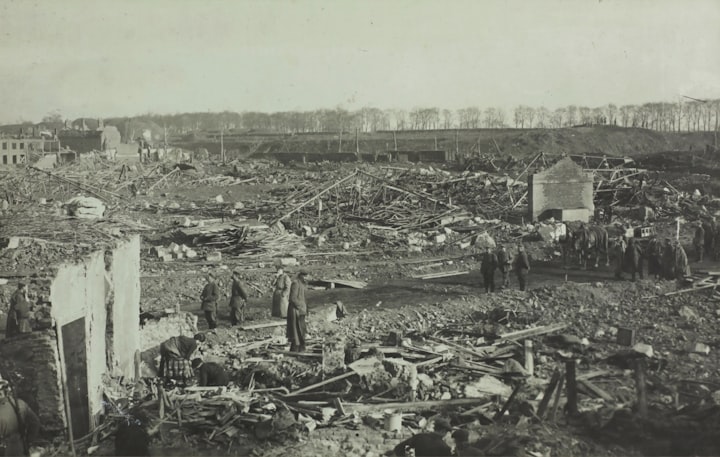The first world war broke out in
first world w

The first world war broke out in
WWI, otherwise called The Second Great War, was a worldwide clash that endured from 1914 to 1918. The conflict included most of the world's countries, including the extraordinary powers as a whole, in the long run shaping two contradicting military unions, the Partners and the Focal Powers. The reasons for the conflict are mind boggling and include a blend of elements including government, patriotism, and military unions. The death of Archduke Franz Ferdinand of Austria-Hungary on June 28, 1914, was the trigger that set off the occasions that prompted the flare-up of the conflict. WWI was portrayed by close quarters conflict and the deficiency of millions of lives and it changed the political, financial, and social scene of the world until the end of time
The reasons for The Second Great War are as yet bantered by antiquarians
The reasons for The Second Great War are still generally bantered among history specialists, as the contention included a complicated trap of political, financial, military, and social variables. One of the most regularly refered to causes is colonialism, as the extraordinary powers of Europe were going after states and domains all over the planet. This opposition brought about an organization of unions and settlements that in the end maneuvered the whole landmass into war. Furthermore, militarism assumed a part in the episode of battle, as the nations of Europe were vigorously putting resources into their tactical capacities and were anxious to utilize them.
One more huge reason for The Second Great War was the developing patriotism in Europe, which prompted expanded strains among nations and at last brought about the contention. The death of Archduke Franz Ferdinand of Austria-Hungary on June 28, 1914, is generally viewed as the flash that touched off the conflict. The mind boggling trap of coalitions and settlements between the nations of Europe then, at that point, maneuvered the mainland into a gigantic clash that went on for a long time and brought about the passings of millions of individuals. Nonetheless, history specialists keep on discussing the particular reasons for the conflict and the occasions that prompted its episode, as the contention was molded by a mind boggling interchange of a wide range of variables.
The conflict started on July 28, 1914, when Austria-Hungary proclaimed battle on Serbia
The beginning of The Second Great War can be followed back to the death of Archduke Franz Ferdinand of Austria-Hungary on June 28, 1914. This occasion set off a chain response of occasions that eventually prompted the statement of war on July 28, 1914, when Austria-Hungary pronounced battle on Serbia. The perplexing organization of unions and arrangements between the nations of Europe maneuvered the whole landmass into the contention, as nations activated their tactical powers to protect their inclinations. The occasions paving the way to the conflict had made a liability of strains and contentions, and the death of the Archduke gave the flash that lighted the contention.
The formal statement of war by Austria-Hungary was trailed by a quick series of occasions as the nations of Europe prepared their militaries and did battle. In no time, Germany proclaimed battle on Russia, and in no less than seven days, Germany had announced battle on Belgium and France also. The conflict before long spread to different areas of the planet, as the different states and domains of the extraordinary powers became engaged with the contention. The battling went on for a considerable length of time and brought about the passings of millions of individuals, denoting a defining moment in world history and molding the political, financial, and social scene of the twentieth hundred years
Germany, Austria-Hungary's partner, attacked Belgium and Luxembourg on July 31, 1914
Germany, a solid partner of Austria-Hungary, immediately became engaged with the contention that had ejected in Europe. On July 31, 1914, Germany attacked Belgium and Luxembourg, accordingly disregarding the unbiased status of those nations and bringing different countries into the conflict. This move by Germany was essential for their general procedure known as the Schlieffen Plan, which was intended to overcome France in the west prior to directing their concentration toward the Russian front in the east rapidly.
The attack of Belgium and Luxembourg by Germany brought about areas of strength for a from different countries of Europe, as England pronounced battle on Germany on August 4, 1914. This noticeable the beginning of a long and severe clash that would come to be known as The Second Great War. The intrusion of Belgium was huge in light of the fact that it was an infringement of global regulation and the standards of nonpartisanship, and it assisted with electrifying general assessment against Germany in a considerable lot of the United nations. The attack likewise exhibited the readiness of Germany to utilize military power to accomplish their goals, making way for the fierce four-year struggle that would follow
France, England and Russia, the Triple Understanding partners, answered by pronouncing battle on Germany.
The attack of Belgium and Luxembourg by Germany brought about areas of strength for a from France, England, and Russia, the countries that contained the Triple Understanding collusion. These three nations, who had shaped an alliance because of the developing danger presented by Germany, proclaimed battle on Germany with regards to Belgium and on the side of their own advantages. The statement of war by the Triple Understanding denoted the conventional beginning of The Second Great War and set up for perhaps of the deadliest struggle in mankind's set of experiences
The reaction by France, England, and Russia was critical in light of the fact that it exhibited the force of the collusions and deals that had been laid out between the nations of Europe. The Triple Understanding was framed as an offset to the Focal Powers, which were driven by Germany and Austria-Hungary, and it assumed a critical part in the episode of the conflict .
The reaction by France, England, and Russia was critical in light of the fact that it exhibited the force of the partnerships and settlements that had been laid out between the nations of Europe. The Triple Understanding was shaped as an offset to the Focal Powers, which were driven by Germany and Austria-Hungary, and it assumed a critical part in the episode of the conflict. The formal statement of war by the Triple Understanding likewise denoted the beginning of a long and severe struggle that would test the military, monetary, and political strength of the taking part countries. The reaction by these three nations set up for the four-year struggle that would shape the world and result in the deficiency of millions of lives
About the Creator
xis-kaab12
In their professional career, Xis-kaab has been recognized for their ability to turn complex ideas into tangible and impactful products, always striving for excellence in their work and pushing the boundaries






Comments
There are no comments for this story
Be the first to respond and start the conversation.